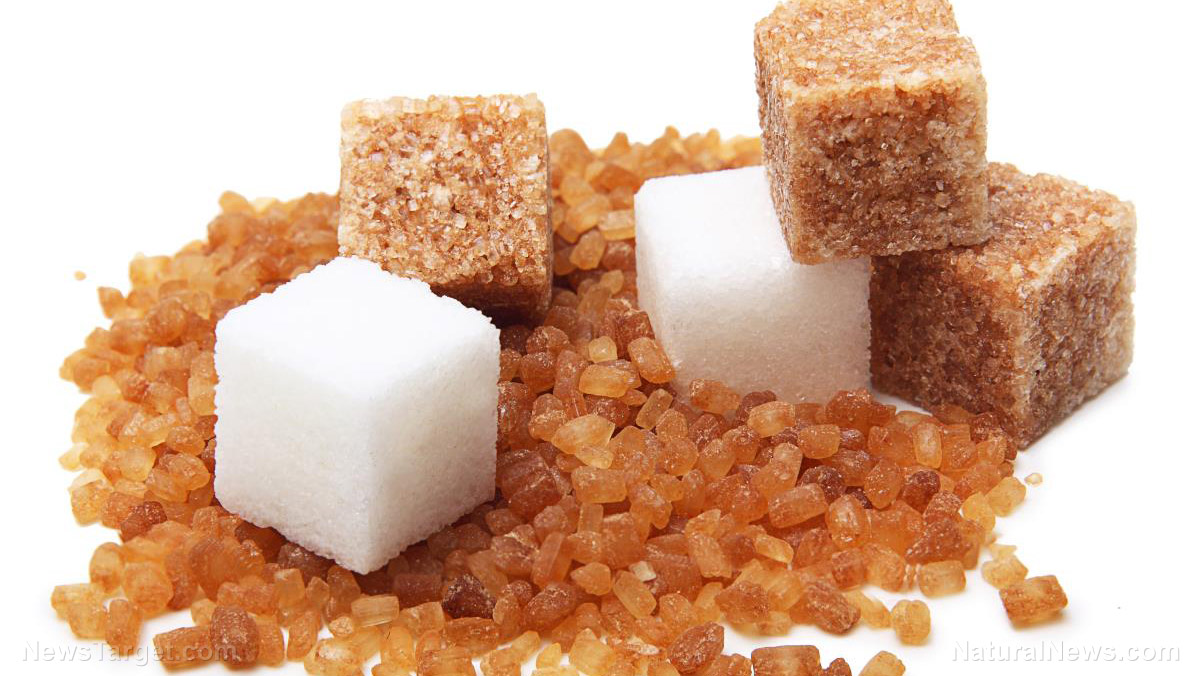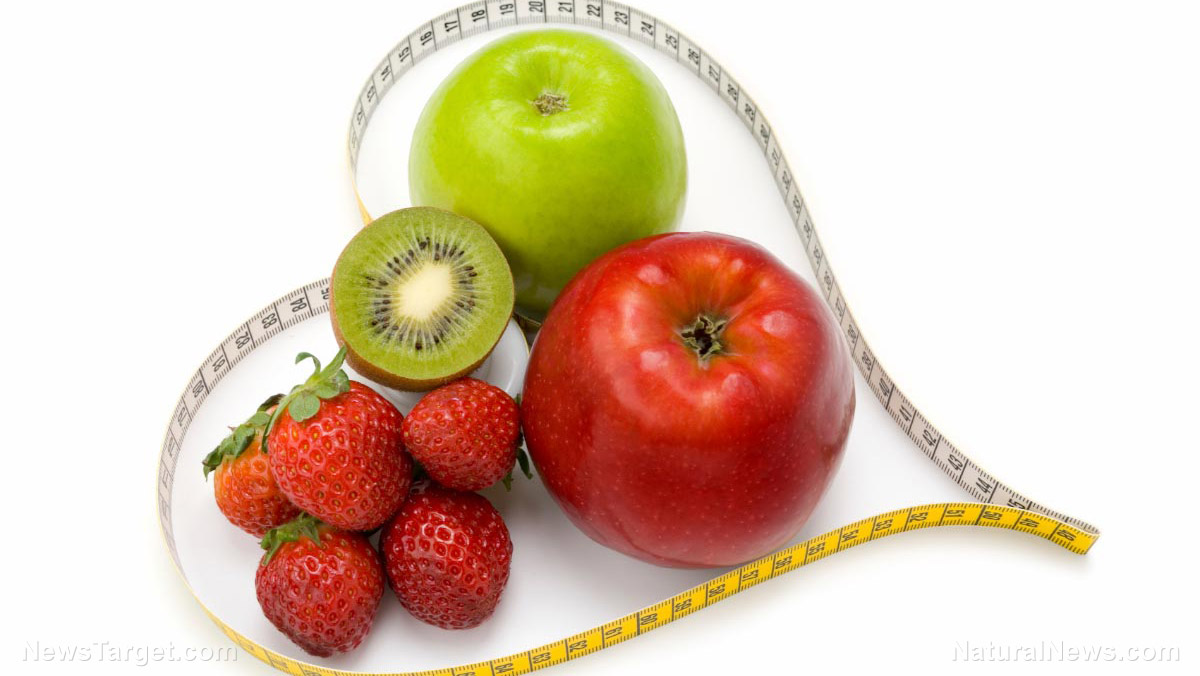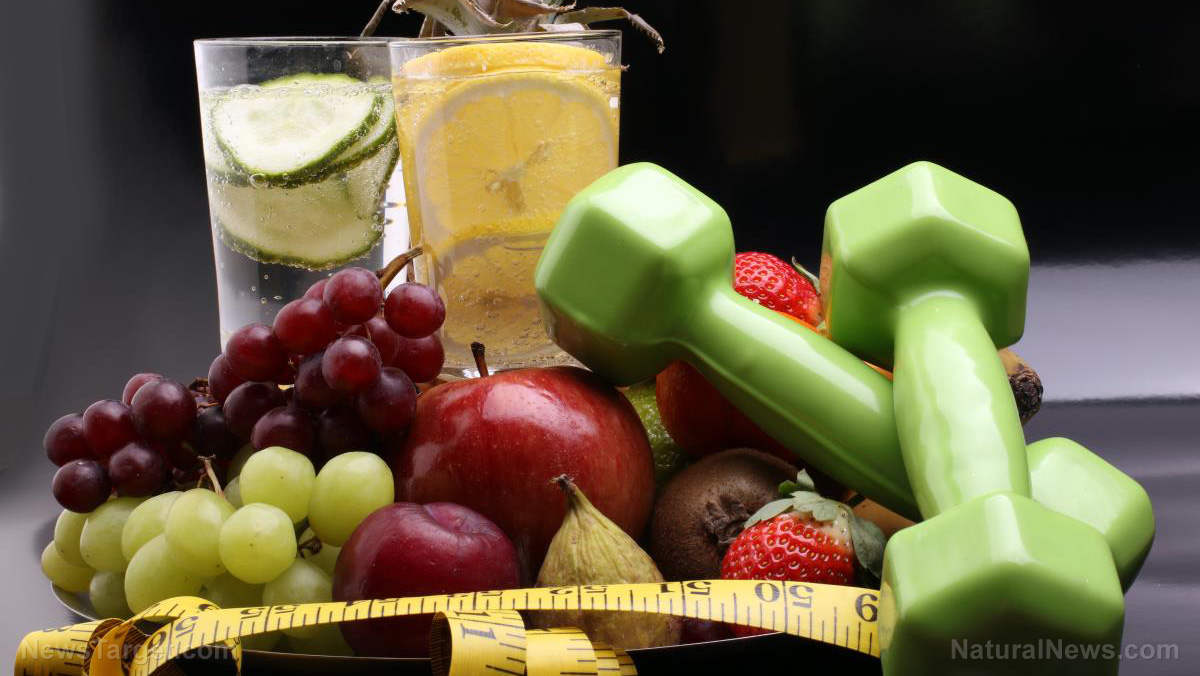Portion control: Eat your fruit, don’t drink it; study finds consumption of fruit juice contributes to weight gain
08/21/2018 / By Edsel Cook

Fruits are really meant to be eaten, not drunk. That’s the conclusion of a recently released study that found out drinking 100 percent fruit juice contributed to weight gain instead of weight loss. The Seattle-based researchers recommended people eat whole fruits if they want to really shed some pounds, reported a Newswise article.
“American adults gain an average of one pound per year,” explained the report, which was published in Preventive Medicine this January. “And it is a public health priority to determine which foods and beverages contribute the most to this gradual weight gain.”
For this study, a team of physicians from the Virginia Mason Medical Center investigated the consumption habits and body weight of more than 49,000 American women enrolled in the Women’s Health Initiative from 1993 to 1998.
Participants were given food-frequency questionnaires to identify the food and beverages they most commonly consumed during the course of the study. Their body weights would be measured during their visits to in-person clinics and recorded for comparison.
The study found that adding a single six-ounce serving of 100 percent fruit juice to daily consumption led to a modest amount of weight gain over a long period of time. Researchers derived an average weight gain of 0.4 pounds (6.4 ounces) per participant throughout a period of three years.
In comparison, drinking more soda increased the average weight gain by 0.6 pounds or (9.6 ounces) over the same amount of time, which is still 50 percent greater than that of fruit juice.
Finally, eating one additional serving of whole fruit led to a loss of 0.9 pounds (14.4 ounces) over three years. Eating fruit was clearly the healthiest out of the three consumption habits covered by the researchers.
“It is biologically plausible that drinking 100 percent fruit juice is associated with long-term weight gain,” the study concluded. (Related: Forgo the fruit juice and choose fresh fruit instead: Research-proven diabetes protection.)
Not as healthy as you’d think
Most people believe 100 percent fruit juice is a much healthy alternative to soda. They also prefer it over eating fresh fruit due to the difficulty and expense of acquiring a steady supply of the latter.
However, a single six-ounce serving of 100 percent fruit juice contained 15-30 g of sugar, 60-120 calories and negligible amounts of dietary fiber. It also had a moderately high glycemic load, reported Newswise.
Glycemic load measures how much a certain type of food or drink will increase the blood glucose level of a person. People who practice diets or have been diagnosed with diabetes need to keep an eye on the glycemic load of their food and drinks.
“Even high-pulp, 100 percent orange juice is not a significant source of dietary fiber,” warned the study.
These findings echoed the 2015-2020 Dietary Guidelines for Americans released by the Department of Health and Human Services and the Department of Agriculture.
The guidelines endorsed people to eat whole fruits and limit their intake of 100 percent fruit juice.
“Adults should have at least two servings of fruit a day, ideally more,” said Dr. Brandon Auerbach of the Virginia Mason Medical Center.
An internal medicine and primary care physician, Dr. Auerbach served as the leader of the study. He explained that fruit juice did possess health benefits, but they paled in comparison to the consumption of fresh fruit, especially when considering their contribution to weight gain.
“Even though 100 percent fruit juice has lots of vitamins, minerals, and nutrients like antioxidants, it’s really better to get your daily fruit in the form of whole fruit. Especially for adults trying to lose weight, 100 percent fruit juice is not your friend,” Dr. Auerbach warned.
Find out much better ways to shed those pesky pounds at Slender.news.
Sources include:
Tagged Under: consumption habits, Diets, fitness, food research, Fresh, fruit juice, glycemic load, nutrients, nutrition, portion control, science, slender, weight gain, weight loss, whole fruits

















